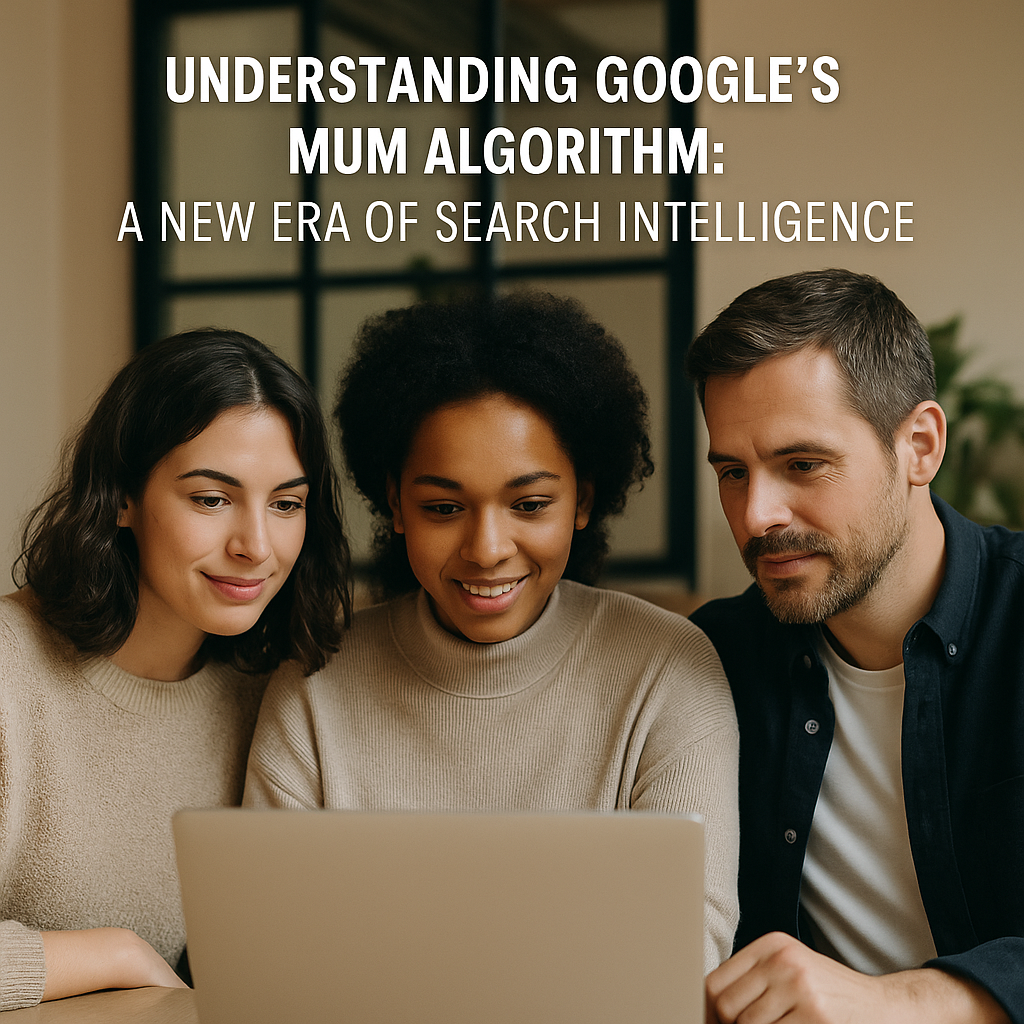What Is Google’s MUM Algorithm? Simple Guide with Examples
Introduction
IIn May 2021, Google launched something big called MUM – short for Multitask Unified Model.
Think of MUM as Google getting a super brain upgrade.
It doesn’t just read words anymore it can understand questions better, learn from many languages, and even look at pictures to give you better answers.
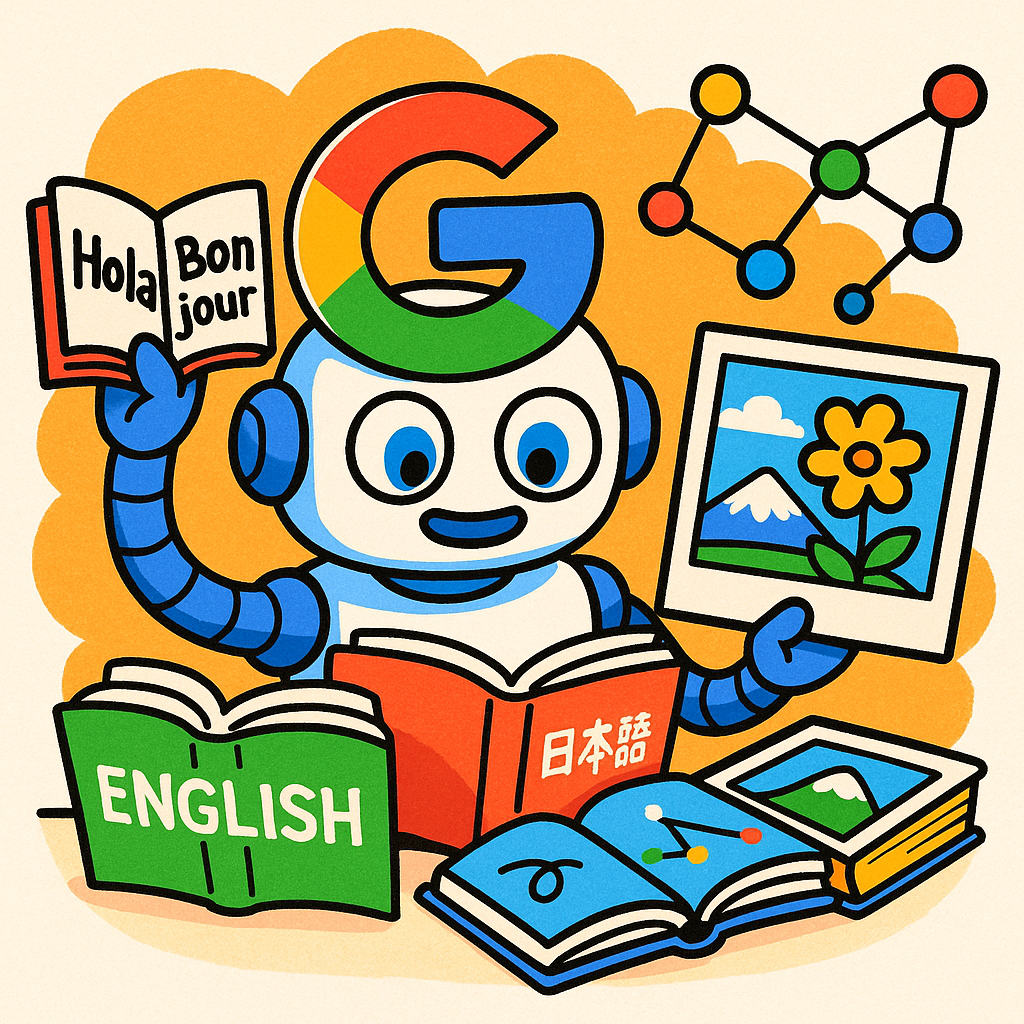
🤔 What is MUM?
MUM is Google’s new smart algorithm. It’s like BERT (an older model) but 1,000 times more powerful.
Here’s what it can do:
🌎 Understand 75+ languages
✍️ Not only read content but also generate answers
🖼️ Handle text + images (soon videos and audio too)
🧩 Solve complex questions by pulling info from many sources
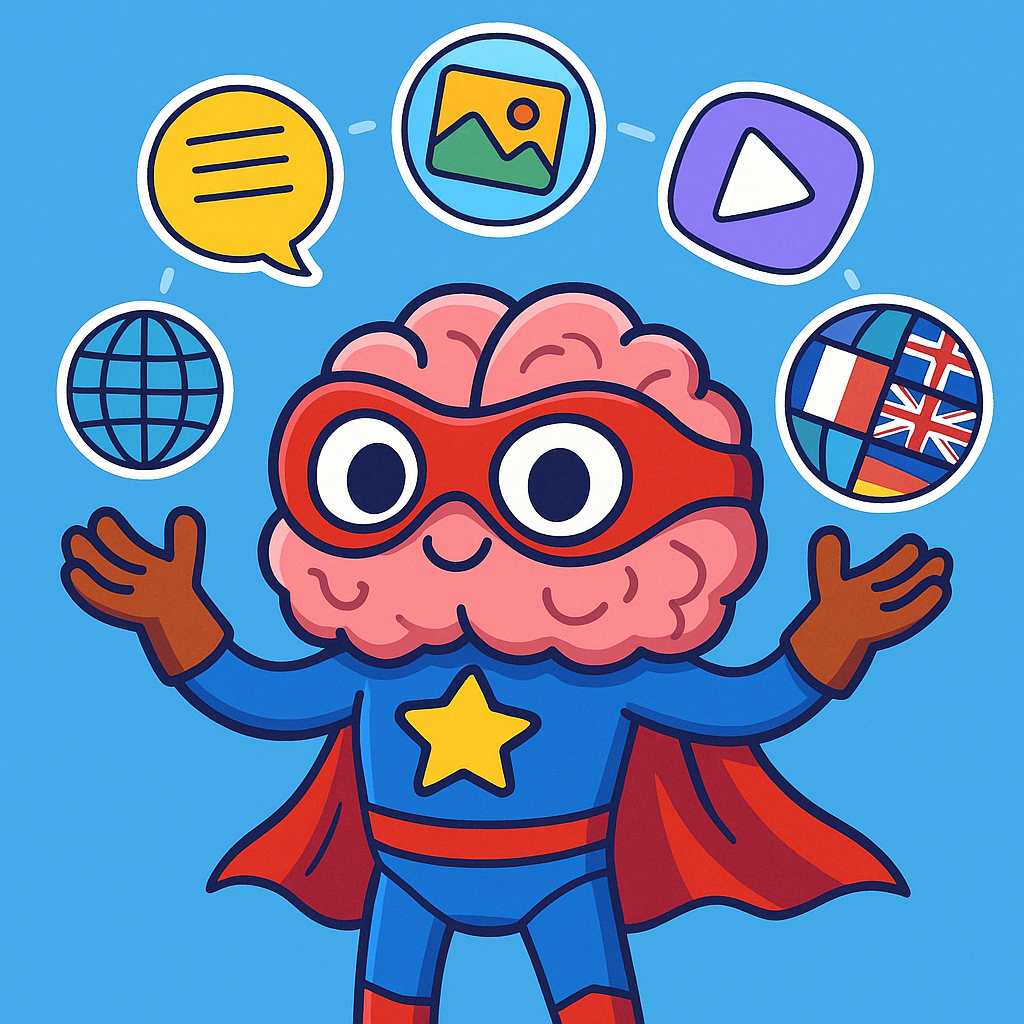
🛠️ Why Did Google Need MUM?
Before MUM, people had to make 8+ different searches to solve one complex problem.
Example:
“I hiked Mt. Adams, now I want to hike Mt. Fuji. What do I need to do differently?”
➡️ Old Google struggled.
➡️ New Google (MUM) can look at travel blogs, weather reports, equipment guides—even in Japanese—and give you one complete answer.
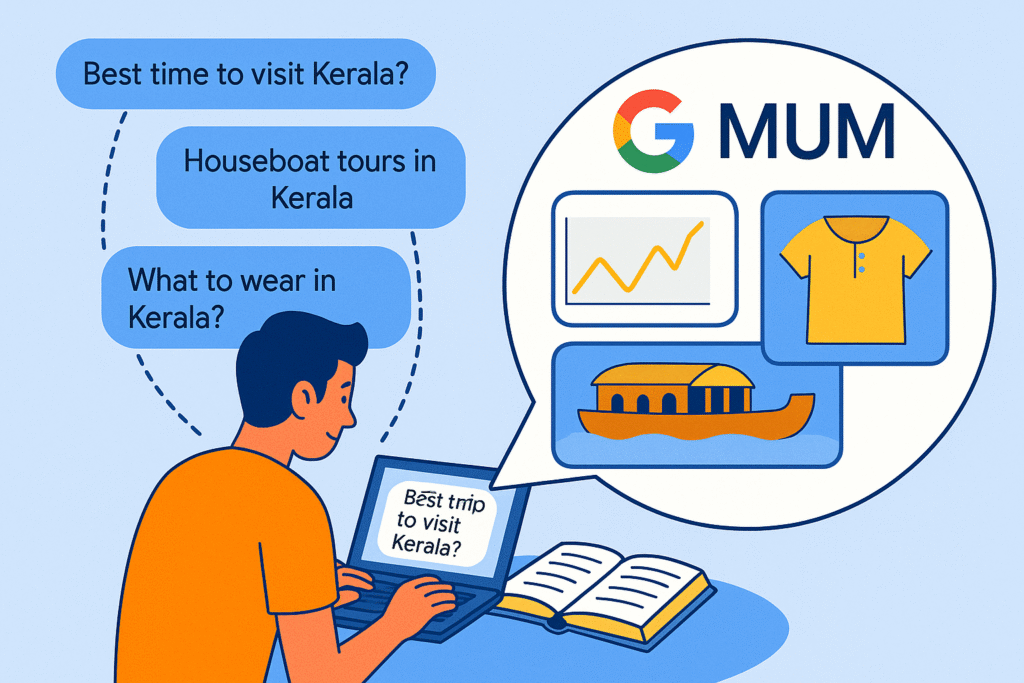
.
📖 Quick History of Google’s Smart Algorithms
| Year | Algorithm | What it Did |
|---|
| 2015 | RankBrain | Helped Google understand meaning, not just keywords |
| 2019 | BERT | Understood natural language much better |
| 2021 | MUM | Multilingual + multimodal + multitask power |
🚀 How MUM Changed Search
1️⃣ Multilingual Knowledge
MUM can read articles in Japanese, Spanish, or Polish and use them to answer your question in English.
👉 Image: A book in Japanese turning into an English answer bubble.
2️⃣ Multimodal Search
Now you can take a photo (say, a broken bike part) and ask Google: “How do I fix this?”
👉 Image: Someone snapping a bike part with their phone, Google replying with instructions.
3️⃣ Fewer Searches
Google shows “Things to Know” and “Topic Zoom” so you don’t need to keep searching again and again.
👉 Image: One search bar branching into many helpful subtopics.
4️⃣ New Features
Things to Know: Google suggests important related info.
Topic Zoom: Look deeper into details or zoom out for a bigger picture.
Visual Exploration: See more images and videos for your topic.
Key Moments in Videos: Google highlights the most useful parts of a video.
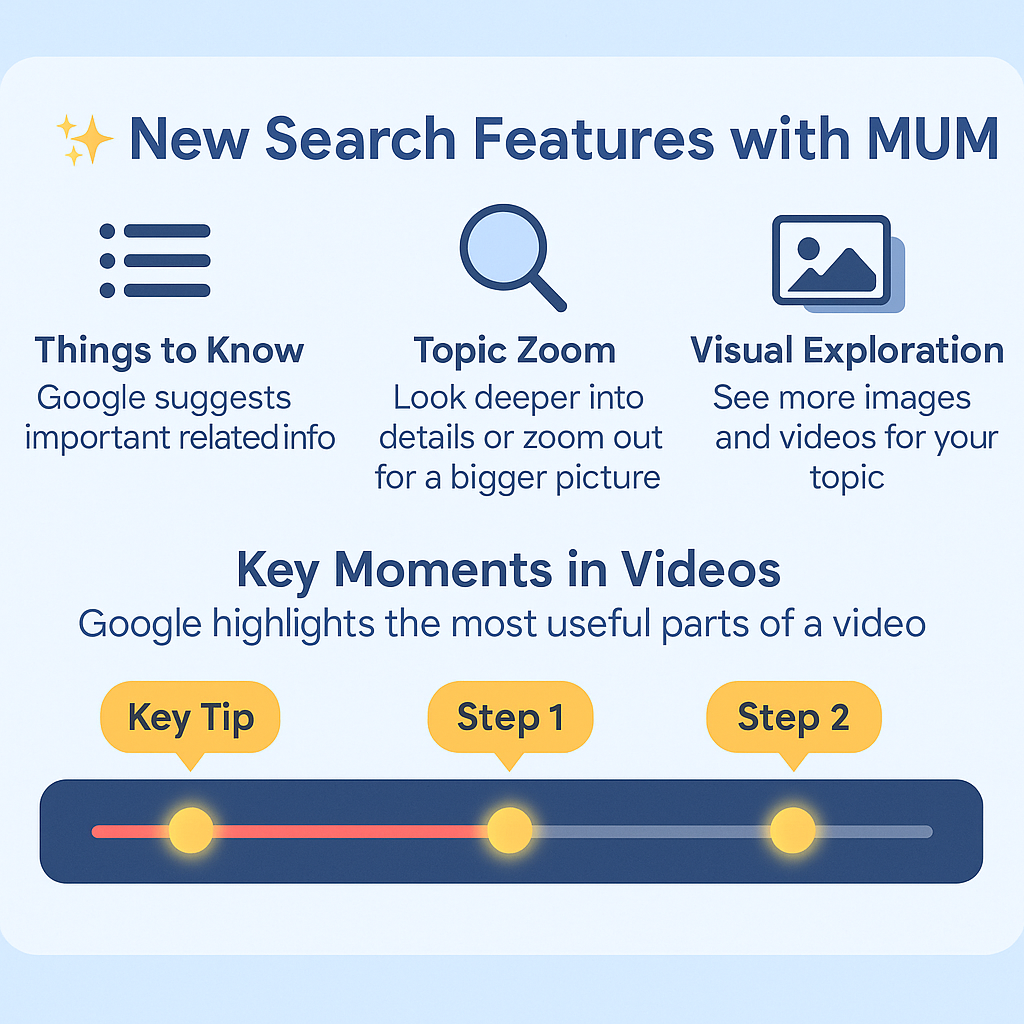
🌍 Real-Life Examples
🥾 Travel: Snap a hiking boot → Google tells you if it’s good for Mt. Fuji.
📚 Languages: Spanish question → Answer comes from Polish research.
🏖️ Trips: “Best time to visit Kerala” → Weather + local blogs + travel guides in one result.
MUM can learn from sources in other languages and apply that knowledge to English queries. For example, it can read research papers in Japanese and answer English-language questions using that content.
✅ Benefits of MUM
| Benefit | Why It’s Cool |
|---|
| 🔍 Better Understanding | Handles tricky, multi-part questions |
| 🌎 Global Access | Breaks language barriers |
| 🖼️ Multimodal | Works with text, images (soon video/audio) |
| 🧠 Knowledge Fusion | Mixes info from many sources |
| ⏱️ Saves Time | Fewer searches needed |
📊 Stats that Show Its Power
1,000x stronger than BERT
Covers 75 languages
Already used in Google Lens + Search redesigns
Google says it makes answers to complex questions much more accurate
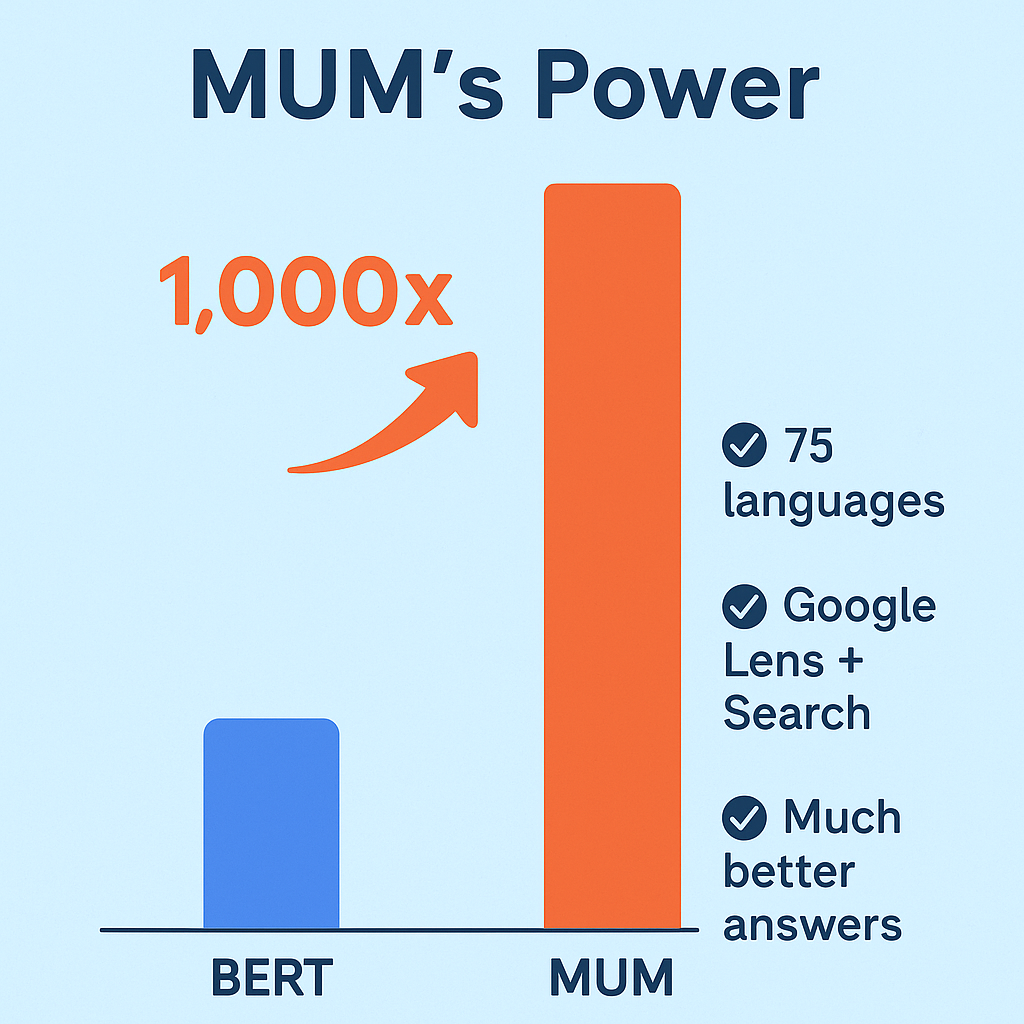
🎯 Conclusion
MUM is more than just another update – it’s the future of Google Search.
Search is becoming smarter, faster, and more human-like
No more keyword-stuffing → now it’s about context & intent
Great for marketers, content creators, and everyday users
